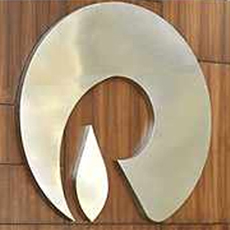 The government has rejected Reliance Industries' proposal to invest in survey of all discoveries made in KG-D6 gas block, and has instead directed the company to restrict pre-development expenses only to fields that have been proved to be commercially viable.
The government has rejected Reliance Industries' proposal to invest in survey of all discoveries made in KG-D6 gas block, and has instead directed the company to restrict pre-development expenses only to fields that have been proved to be commercially viable.
RIL and its British partner BP Plc had proposed undertaking concept validation and Front End Engineering Design for all the 16 gas discoveries surrounding the currently producing Dhirubhai-1 and 3 fields in the 7,645 sq km KG-DWN-98/3 or KG-D6 block.
But the block oversight committee, headed by upstream oil regulator the Directorate General of Hydrocarbons, on April 20 rejected the proposal saying pre-development investments can only be done in fields which have either been proved to be commercially viable or whose field development plan has been accepted by the authorities, sources said.
The Management Committee, which also has senior officials of the Oil Ministry as members, approved RIL-BP making the investment in the four satellite fields whose $1.529 billion FDP was approved in January, and on D-34 or R-Series field whose commerciality had been approved in February.
Sources said all investment in pre-development activities are deducted from revenues earned from gas sales before profits are split between the operator and the government.
Any infructuous investment would restrict government profit take, the Management Committee felt.
In all, 18 gas and one oil discovery has been made in the KG-D6 block in Bay of Bengal.
Of these two gas finds, D1 and D3, and one oil, D-26 or MA, have been put on production.
Of the remaining 16 gas discoveries, commerciality of only five has been approved.
Commerciality is the first step to developing a discovery and essentially means the find holds enough reserves to be commercially produced at current rates.
Sources said DGH maintained that pre-development activities (FEED and concept validation) cannot be undertaken on D29, 30 and 31,
whose commerciality was rejected a few weeks back.
RIL-BP felt a comprehensive survey on entire block would save cost and aid in drawing an integrated development plan for all the 18 finds by October.
The integrated plan, they feel, would help in arresting flagging out from the block.
RIL began production from Dhirubhai-1 and 3 (D1&D3) fields -- the largest among the 18 gas and one oil find -- in April 2009, but output has fallen from a peak of 54 million cubic meters per day in March 2010 to 27.64 mmcmd this month.
Together with 6.45 mmcmd of gas production from D-26 or MA oil field in the same area, block output is 34.09 mmcmd.
The MC is chaired by DGH and includes oil ministry officials and representatives of RIL, BP, and Niko Resources of Canada, the third partner in KG-D6.
RIL is the operator of the KG-D6 block with 60 per cent interest and BP holds 30 per cent stake. Niko has the remaining 10 per cent.
Sources said RIL-BP are working on an integrated and capital efficient plan for block development, involving production from all the 18 gas discoveries in KG-D6.
They projected first gas from R-Series, the third largest gas find in KG-D6 block, by 2015 and production from satellite fields by 2016 subject to timely regulatory approvals.
The plan would help in cost savings of over $1 billion because of integration and optimisation.
In addition, un-incurred phase-II cost of D1&D3 field development plan ($3.1 billion out of total cost of $8.8 billion) would not be required to be spent, they said.
Sources said RIL-BP plan to connect R-Series and four satellite fields, for which a $ 1.529 billion field development plan was approved by the government in January, to the existing infrastructure used to produce gas from D1&D3 and MA.
Also, other satellite fields would be hooked up to these.
R-series and four satellite fields alone have potential to add 30 mmscmd of output.
© Copyright 2024 PTI. All rights reserved. Republication or redistribution of PTI content, including by framing or similar means, is expressly prohibited without the prior written consent.

 The government has rejected Reliance Industries' proposal to invest in survey of all discoveries made in KG-D6 gas block, and has instead directed the company to restrict pre-development expenses only to fields that have been proved to be commercially viable.
The government has rejected Reliance Industries' proposal to invest in survey of all discoveries made in KG-D6 gas block, and has instead directed the company to restrict pre-development expenses only to fields that have been proved to be commercially viable.